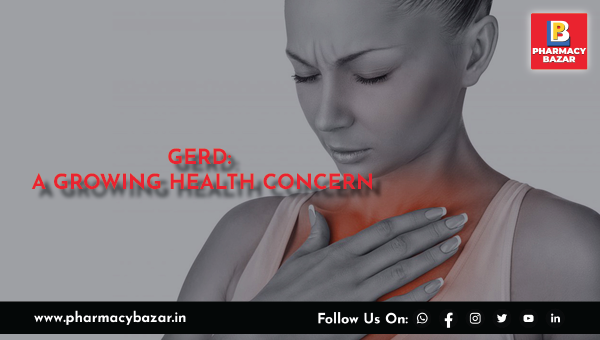GERD: A GROWING HEALTH CONCERN IN INDIA AND GLOBALLY
Apr 23, 2023
Gastroesophageal Reflux Disease (GERD) is a common digestive disorder that affects people all around the world. The prevalence of GERD varies depending on the region and population studied, but overall, it is estimated to affect up to 20% of the population in developed countries.
In the United States, GERD is a common condition that affects millions of people, with an estimated 20% of the population experiencing symptoms at least once a week. It is more common in older adults, smokers, and those who are overweight or obese.
In Europe, the prevalence of GERD varies by region, with higher rates reported in the northern and western parts of the continent. It is estimated that up to 10% of the population in some European countries experience symptoms of GERD.
In Asia, the prevalence of GERD is also high, with some studies reporting rates of up to 30% in certain populations. Risk factors for GERD in Asia include obesity, smoking, and a diet high in fat and spice.
In Africa and South America, there is limited data on the prevalence of GERD, but studies suggest that it is becoming increasingly common in these regions as diets and lifestyles become more Westernized.
Overall, GERD is a global health concern that affects a significant portion of the population. It is important for individuals who experience symptoms of GERD to seek medical attention and receive appropriate treatment to manage their symptoms and prevent complications. Gastroesophageal Reflux Disease (GERD) is becoming increasingly common in India, with studies suggesting that up to 10% of the population may be affected. GERD is more prevalent in urban areas, where lifestyles and diets are becoming more Westernized.
Risk factors for GERD in India include obesity, smoking, alcohol consumption, a diet high in fat and spice, and stress. GERD is also more common in older adults and those with certain medical conditions, such as hiatal hernia, peptic ulcer disease, and Barrett's esophagus.
Symptoms of GERD in India are similar to those experienced in other parts of the world, including heartburn, regurgitation, difficulty swallowing, and chest pain. Many individuals with GERD in India may not seek medical attention, and instead, rely on self-medication with over-the-counter antacids or home remedies.
However, it is important for individuals with GERD to seek medical attention to receive an accurate diagnosis and appropriate treatment. Untreated GERD can lead to complications such as esophagitis, strictures, and Barrett's esophagus, which can increase the risk of esophageal cancer.
Treatment for GERD in India is similar to that in other parts of the world and may include lifestyle modifications, such as changes in diet and eating habits, weight loss, and quitting smoking, as well as medications. In severe cases, surgery may be necessary.
Overall, GERD is a growing health concern in India, and individuals who experience symptoms of GERD should seek medical attention to receive appropriate treatment and prevent complications.
What is Gastroesophageal Reflux Disease (GERD)?
Gastroesophageal Reflux Disease (GERD) is a digestive disorder in which stomach acid flows back into the esophagus, the tube that connects the throat to the stomach. Normally, the lower esophageal sphincter (LES) acts as a one-way valve, allowing food and liquid to enter the stomach, but preventing stomach contents from flowing back into the esophagus.
When the LES is weak or relaxes inappropriately, stomach acid can flow back up into the esophagus, causing irritation and inflammation. This can lead to a variety of symptoms including heartburn, regurgitation, difficulty swallowing, and chest pain.
GERD can be caused by a number of factors including obesity, pregnancy, smoking, and certain medications. Certain foods and drinks can also trigger GERD symptoms, such as chocolate, coffee, alcohol, and spicy foods.
Diagnosis of GERD typically involves a medical history and physical exam, along with tests such as an upper endoscopy, a test to measure the amount of acid in the esophagus or a pH test to measure acid levels in the stomach.
Symptoms
The symptoms of Gastroesophageal Reflux Disease (GERD) can vary from person to person, but some of the most common symptoms include:
- Heartburn: A burning sensation in the chest often occurs after eating, especially after a large meal.
- Regurgitation: A sour or bitter taste in the mouth or throat, often accompanied by the sensation of food or liquid flowing back up into the mouth.
- Dysphagia: Difficulty swallowing, especially with solid foods or large pills.
- Chest pain: A sharp or burning pain in the chest that may be mistaken for a heart attack.
- Nausea and vomiting: Occasional nausea and vomiting may be associated with GERD, especially in severe cases.
- Hoarseness or sore throat: Irritation and inflammation of the esophagus can cause hoarseness or a persistent sore throat.
- Chronic cough: A persistent cough that is not related to a respiratory infection or other known cause may be a symptom of GERD.
Treatment
Treatment for Gastroesophageal Reflux Disease (GERD) usually involves a combination of lifestyle modifications, medications, and in some cases, surgery. The goal of treatment is to alleviate symptoms, heal any damage to the esophagus, and prevent complications.
Lifestyle modifications: This may include changes in diet and eating habits, such as avoiding trigger foods, eating smaller, more frequent meals, and avoiding lying down or bending over after eating. Losing weight, quitting smoking, and reducing alcohol and caffeine intake can also be helpful.
There are several types of medications that can be used to treat Gastroesophageal Reflux Disease (GERD):
Antacids: These medications provide quick relief by neutralizing stomach acid. Common antacids include Tums, Rolaids, and Maalox.
H2 blockers: These medications reduce the amount of acid the stomach produces and are often used to prevent symptoms from occurring. Common H2 blockers include ranitidine (Zantac), famotidine (Pepcid), and cimetidine (Tagamet).
Proton pump inhibitors (PPIs): These medications are more powerful than H2 blockers and can provide longer-lasting relief by blocking acid production. Common PPIs include omeprazole (Prilosec), lansoprazole (Prevacid), and esomeprazole (Nexium).
Prokinetics: These medications can help strengthen the lower esophageal sphincter (LES) and improve gastric emptying. Common prokinetics include metoclopramide (Reglan) and domperidone (Motilium).
Gastroesophageal Reflux Disease (GERD) is a chronic condition, which means it is not curable. However, it is a manageable condition and with the right treatment, most people can find relief from their symptoms.
Lifestyle modifications, such as changes in diet and eating habits, weight loss, and quitting smoking, can help reduce symptoms and improve quality of life. Medications, such as antacids, H2 blockers, PPIs, and prokinetics, can also be effective in managing GERD symptoms.
In some cases, surgery may be necessary to repair a hiatal hernia or reinforce the lower esophageal sphincter (LES) in severe cases of GERD.
It is important to work with a healthcare provider to develop a treatment plan that is tailored to your individual needs and to follow recommended lifestyle modifications and medication regimens. With the right treatment and management, most people with GERD can lead healthy and comfortable life.
DISCLAIMER: This article is the property of Pharmacy Bazar and is protected by copyright laws. The information provided in this article is for educational and informational purposes only and is not intended to be a substitute for professional medical advice, diagnosis, or treatment. Always seek the advice of a qualified healthcare provider with any questions you may have regarding a medical condition. Never disregard professional medical advice or delay in seeking it because of something you have read in this article. The author and publisher of this article do not endorse any specific treatments, procedures, or products mentioned in this article.
Recent Post
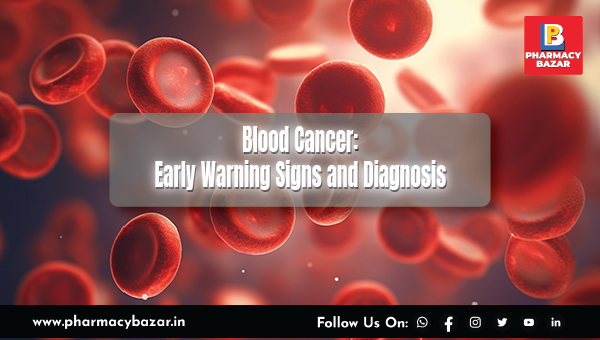
Blood Cancer: Early Warning Signs and Diagnosis
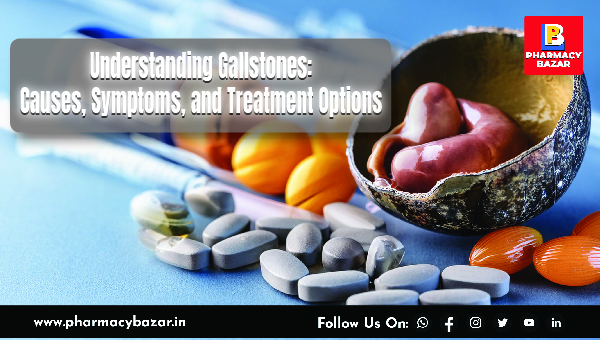
Understanding Gallstones: Causes, Symptoms, and Treatment Options
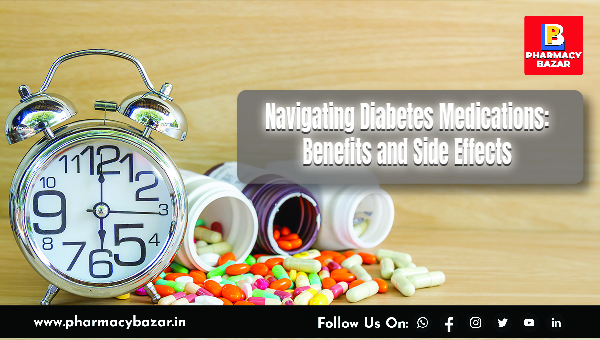
Navigating Diabetes Medications: Benefits and Side Effects

Revolutionizing Cancer Treatment: How Unleashing T Cells' Energy Could Transform Immunotherapy

The Power of Lower Back Stretches: Benefits and Best Yoga Asanas for a Healthy Spine

8 Health Conditions That Could Be Due to Magnesium Deficiency

Unlocking Brain Health: How Lifestyle Choices Impact Cognitive Functions

When Speech Takes a Surprising Turn: Unraveling Foreign Accent Syndrome

The Optimal Time to Take Your Vitamin D Supplement: Insights and Best Practices
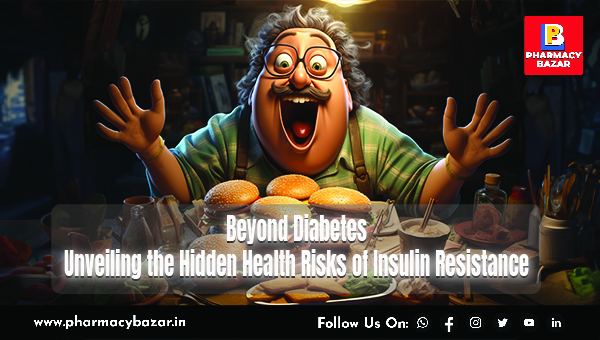
Beyond Diabetes: Unveiling the Hidden Health Risks of Insulin Resistance

